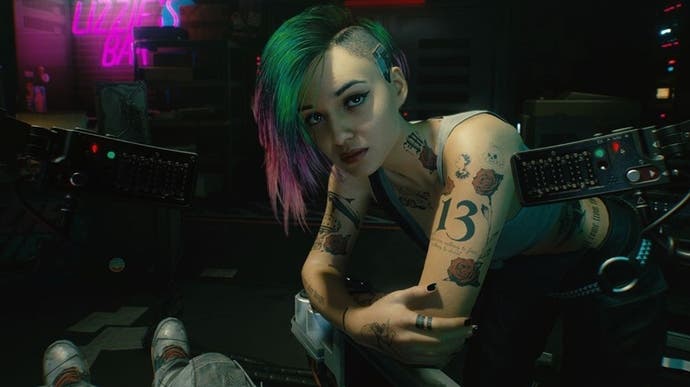2020s best games reimagined old ideas in new worlds
Bertie's best games of 2020.
Editor's note: Take a breath. We're almost there. 2020's been quite the year, and it's very nearly over. Across the festive break, members of the Eurogamer team and our contributors will be running down their personal top five games of 2020, before we announce our game of the year - and before, of course, we hand over to you for the annual Reader's Top 50. Thanks for being with us this year, and see you on the other side.
I never thought I'd be talking about Grounded as one of my games of the year. I thought it would be a fun-for-one-evening kind of game. But it's still there, still rigidly imprinted on my mind. And do you know what the memory looks like? It looks like a gigantic hairy spider.
I was obsessed with them; I was obsessed with it. It wasn't just that they were there, in the same way ants were there, or aphids, or ladybirds, or gnats, and that they looked incredible seen from a tiny perspective. It was that they were the menace. They were the villain in this familiar but alien backyard world. Their threat was everywhere (though they seem to be more orderly in recent builds of the game? I think they were more aggressive and active at the beginning. And I should add that playing the game alone makes for a far stronger experience where the spiders are concerned, than playing with the safety of friends.)
And all of that gave order and focus and shape to the game around me. A survival game with an assortment of mechanics that were, otherwise, a bit mediocre. There was nothing really new to what I was doing. But shrink me and put me in a garden, surrounded by suddenly massive insects, and spiders, and the experience becomes unforgettable.
I was similarly taken aback by Call of the Sea recently. What surprised me about it was how like an old point-and-click game it was. And really, there wasn't a lot to it, not mechanically. But did it matter? No. Because the new context it existed in - a beautiful 3D world on a tropical island, filled with eerie mystery - revitalised everything about it. Solving a puzzle to see an island unlock like a giant mechanism in front of you is an awesome sight.
Then there's Pendragon, which is effectively a game made up of playing chess-like encounters over and over again. You hear that, Queen's Gambit fans? But Pendragon gets its oomph from being set in the final days of King Arthur's legend, and by allowing you wiggle-room within to tell your own tale. You use familiar pieces - Lancelot, Guinevere, etc. - and everything you do with them, whether in combat or out, builds your tapestry. And that's what keeps you coming back.
Strip away the context and what would Ghostrunner be? A game about an acrobatic character with a sword, jumping around for some reason and slicing enemies in half. OK, it still sounds pretty interesting, but it's when you layer a cyberpunk world on top, and make the character a robot ninja, and concoct some AI-driven story about reaching the top of a mega-corporation tower to exact revenge, that it gets interesting. That it keeps you going. And in Ghostrunner's case it does all of this without actually really building the world it suggests around you, which is very clever.
Cyberpunk 2077, on the other hand, does build this world around you. And it's this dirty, horrible, dazzling world I really love. It's the rubbish strewn across the streets, it's the graffitied and tagged walls, it's the smashed up this, the beat up that. And it's how that all echoes on the people who inhabit it. Take all that away - take away the neon glow and the undercuts and the ombre hair - and what do you have left? No place I want to be. I want to be in Night City.








